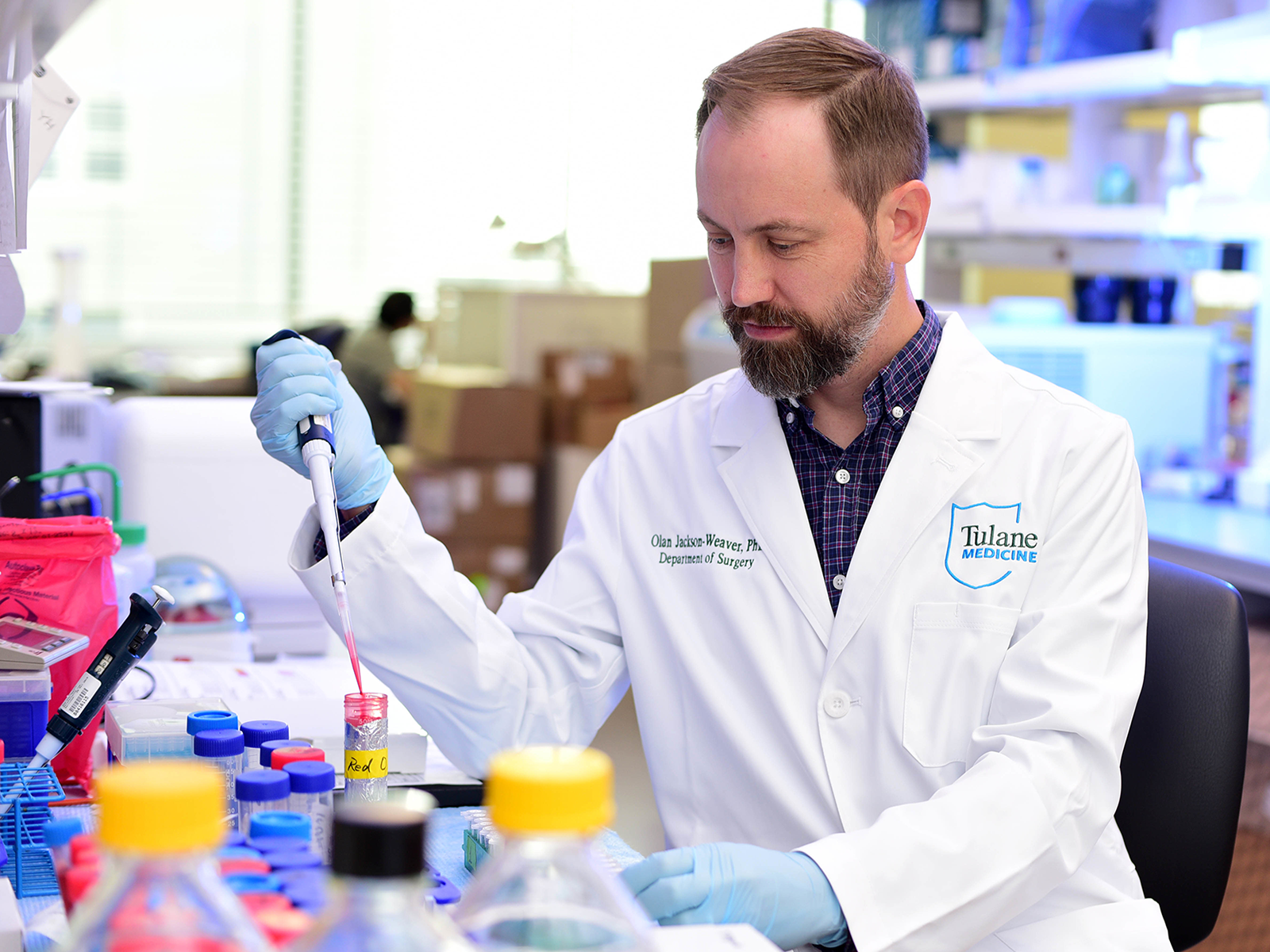Tulane researcher receives $1.6 million grant to study trauma-induced blood loss
November 1, 2024
Molly McCrory A new grant will allow Olan Jackson-Weaver and his lab at the Tulane University School of Medicine to investigate the reasons why some trauma patients have worse outcomes and hopefully find a way to improve survival rates. (Photo by Cheryl Gerber)Physical trauma is one of the leading causes of death for Americans under the age of 45. A new grant will allow researchers at Tulane University to investigate the reasons why some trauma patients have worse outcomes and hopefully find a way to improve survival rates.
Olan Jackson-Weaver, assistant professor of surgery and adjunct professor of physiology in the School of Medicine, has received a grant of over $1.6 million from the National Institute of General Medical Sciences in the National Institutes of Health to study blood loss after acute trauma.
“There’s this interesting phenomenon that occurs in trauma patients called the ‘coagulopathy of trauma’ where your blood clotting doesn’t work,” Jackson-Weaver said. Over a quarter of trauma patients show up to the hospital with this condition.
“They’re injured, they’re bleeding out, and their blood is not helping things out by clotting,” Jackson-Weaver said, “so surgeons have a hard time getting bleeding under control if the coagulation system isn’t working.”
Patients who have this coagulopathy die from their injuries at a higher rate than patients who don’t, so researchers like Jackson-Weaver hope to find a way to mitigate it and improve patient outcomes.
The lining of blood vessels, or endothelium, is covered in what is called the endothelial glycocalyx. “Glycocalyx literally means ‘sugar coating,’” Jackson-Weaver said. “It’s this kind of fuzzy boundary layer made up of sugar and protein.”
When blood vessels are damaged, the endothelial glycocalyx sheds off into the bloodstream, and this shedding is correlated with the coagulopathy seen in trauma patients and with negative outcomes for trauma patients.
“That’s a current idea about where the coagulopathy of trauma is coming from, at least partially,” said Jackson-Weaver. “It probably doesn’t explain everything, but it could explain part of it.”
Jackson-Weaver’s lab will use this grant money to study that correlation in the hopes of finding the mechanism by which the endothelial glycocalyx relates to coagulopathy. If they can understand the mechanism, they might be able to find an effective treatment.
“The cool thing is that we figured out how to study it on a bunch of different levels,” said Jackson-Weaver, from cells in a dish to blood from patients.
Because of the School of Medicine’s relationship with University Medical Center, Jackson-Weaver and his lab have been able to establish a trauma biobank with the Norman E. McSwain, Jr. MD, Spirit of Charity Trauma Center, the only Level 1 Trauma Center in New Orleans. The trauma biobank allows any blood drawn that is leftover after testing and would otherwise go to waste can be used for his research. The samples are de-identified, and the lab gets a limited amount, since most of the blood drawn is used for testing by the hospital, but the data that they get is essential for the research Jackson-Weaver does.
“We can’t change the number of patients that come in, but hopefully, by looking at all of these samples, we can figure out something that will reduce the death rate from a trauma,” said Jackson-Weaver.

